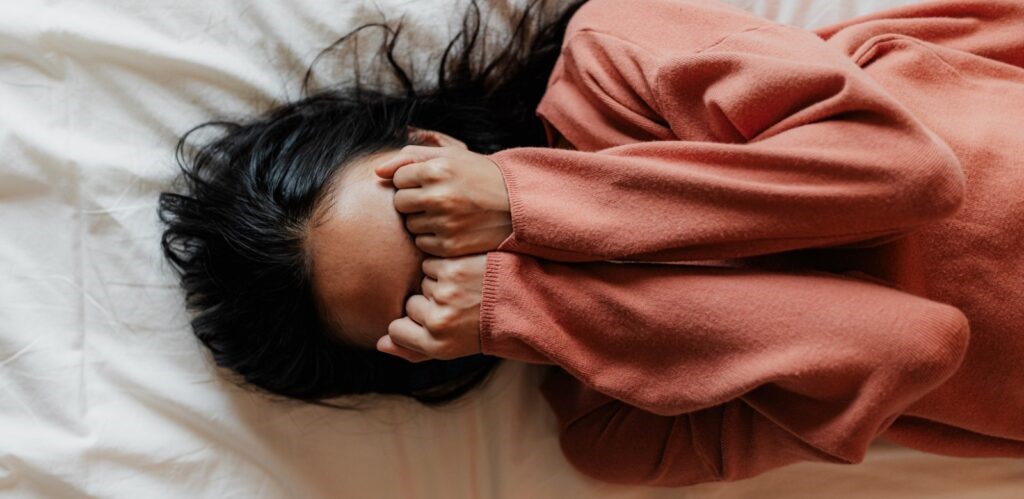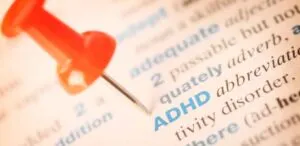Ever question why it’s so challenging to resume regular activities after the holidays or why there are feelings of sadness or disappointment after the holidays? The reason is post-holiday blues, or in simple words post-holiday depression. For many individuals, the week between Thanksgiving and New Year’s Day can be joyous and relaxing, but as the celebrations come to an end, loneliness and sadness may sneak in. The post-holiday blues can also hit after returning to work and coming down from the high of the “most lovely time of the year.” Holidays are a financially, physically, and emotionally challenging time of year despite all the joy and warmth they bring. What you should know about the post-holiday blues and how to deal with such feelings are covered in this article.

What Are Post-Holiday Blues?
Post-Holiday Blues sometimes known as post-vacation syndrome, stress, or depression refers to the short-term feelings that individuals experience after the holidays, including exhaustion, insomnia, low energy, irritability, loneliness, difficulty focusing, and mental distress. Though much greater attention is often given to depression that occurs during the holidays, this condition is still fairly common.
Though little research has been done on the concept of post-holiday blues, the feelings are still fairly usual. The more you talk about this with friends and family, the more you’ll realize that you’re not the only one who has post-holiday blues.
Signs of Post-Holiday Blues
Although the symptoms of the post-holiday blues might vary, none of them are likely to last for very long.
- You might feel stressed
- You might be depressed
- You might have insomnia
- You might feel anxious
- You might feel unmotivated
- You may be in a bad mood
- You might be irritable
- You might have money worries
- You might feel worried too much
- You might feel tired all the time

What Can Trigger the Post-Holiday Blues?
Psychiatrists suggest that the sudden withdrawal of stress hormones after any major incident can have a significant impact on our physical and psychological well-being. People who enjoy the holiday season may experience an increased level of dopamine and serotonin—two feel-good hormones—after spending time with friends and family. When the holiday events are over, so does the level of hormones. The sudden end of the Christmas season can be upsetting and may cause post-holiday blues.
The holidays themselves can be difficult for some people due to high expectations, memories of loved ones who have passed away, challenging family relationships, and financial constraints. There is tiredness from hosting during festivals, traveling, exchanging gifts, or visiting family or friends.
These holidays coincide with the time of year when seasonal affective disorder (SAD) and the winter blues are most common in the United States since they also frequently fall during the winter months. Seasonal changes, shorter days, reduced sunlight, lower physical activity levels, and more loneliness can all contribute to the post-holiday blues.

How to Deal with the Holiday Blues
Working yourself out of a post-holiday melancholy necessitates placing extra attention on the fundamentals of physical and mental well-being as well as some simple lifestyle changes if you are suffering from the post-holiday blues.
Tips to Kick Off Post-Holiday Blues:
Try these tips to kick off your blues after the holidays:
- Ensure your own well-being.
Give yourself a break and take care of yourself. Learning how to take care of yourself and maintain your health, fitness, and happiness includes learning how to eat well, manage your stress, exercise frequently, and take a break when necessary. Experts advise regular exercise and a nutrient-rich diet as pillars of a healthy lifestyle to improve mood and treat the symptoms of depression.
- Connect with friends or family
People with strong social relationships are less likely to have several serious physical and psychological health problems, such as depression, hypertension, and other health disorders. By relying on your friends and family you may maintain a close connection and feeling of not being alone.
- Check if you’re suffering from seasonal affective disorder (SAD).
SAD is a recurrent depressive condition that occurs during darker seasons. According to a new study, increasing activity and visiting the gym are useful treatments for SAD. Visit our website for additional information about Seasonal Affective Disorder (SAD).
- Get enough sleep.
Getting adequate sleep each night is important for maintaining mental health as well as for avoiding chronic illnesses including obesity, diabetes, and high blood pressure. Getting enough sleep frequently makes it easier to control your feelings. Additionally, it may lower your risk of future struggles with your mental health.
- Make time for enjoyment.
The importance of social interaction in improving well-being cannot be ignored. It could feel a little depressing to have an empty schedule now that the Christmas festivities have gone. You may avoid the effect by scheduling enjoyable activities and giving yourself something to look forward to. Reaching out to and spending time in person with friends and other people you care about might give you comfort.

What Is the Duration of Post-Holiday Depression?
Everybody’s experience with this will be different. However, if over time you find that you aren’t celebrating upcoming events or that you remember the holidays with sadness rather than joy, it may be time to speak with a Mental Health Professional.
When Do the Post-Holiday Blues Turn into Something Serious?
Keep a record of how long you have been depressed during the holidays since the signs, such as sadness, absence of motivation, sleep problems, or irritation, might be identical to those of clinical depression.
The after-holiday blues won’t last as long and won’t have as much of an impact on your regular life. Additionally, they will appear after the holidays. It would be wise to consult a healthcare professional if any post-holiday blues symptoms start to interfere with your ability to go about your everyday activities.
Novus Beginning Psychiatry: Your Path to Health and Wellness Starts Here!
We understand that navigating the complexities of mental health can feel overwhelming, but you don’t have to face it alone. At Novus Beginning Psychiatry, we’re here to support you every step of the way. Whether you’re seeking therapy, medication, or a combination of both, our compassionate professionals are dedicated to helping you find the path to a happier, healthier life.
Our highly skilled psychiatrists are experienced in a wide range of mental health conditions, including anxiety, depression, bipolar disorder, OCD, PTSD, ADHD, autism, different types of trauma, and more. We offer evidence-based therapies that have been proven effective in helping individuals overcome their challenges. From cognitive-behavioral therapy (CBT) to couples/family therapy, we utilize the most up-to-date techniques to empower you on your healing journey.
We also recognize that medication is vital in managing certain psychological health conditions. Our team includes Dr. Nibras, who is a board-certified psychiatrist well-versed in medication management. He works closely with you to develop a comprehensive treatment plan, as we believe in the power of personalized care.
So, take the first step towards a brighter future. Contact us today to schedule an appointment. Our friendly staff is ready to assist you in finding a convenient time to meet with our dedicated professionals. Call (832)856-4718 and let us help you take charge of your mental well-being.
Medication Management For Psychiatric Wellness
At Novus Beginning Psychiatry, we’re dedicated to helping you unlock the power of effective medication management. Our team of psychiatrists has years of experience and understands the importance of finding the right balance for your mental health journey. We offer personalized and compassionate care, creating medication plans that are tailored to your unique needs. Our understanding of psychopharmacology allows us to provide the most advanced and evidence-based treatments available.
Our goal is to help you by providing the right medications to enhance your therapy outcomes, reduce your symptoms, and improve your overall well-being. We want to be your trusted partner on the path to a brighter future. Please don’t hesitate to contact us at Novus Beginning Psychiatry to experience the transformative effects of our comprehensive medication management approach.
Who is Dr. Nibras?
Dr. Sohail Nibras is a double board-certified psychiatrist in child, adolescent, and adult psychiatry. He completed his education at Saint Louis University and the American University of Integrative Science. He excels in treatments based on psychiatric care and therapeutic sessions and has experience treating dual psychiatric and substance use disorders. He is an assistant professor at the Menninger Department of Psychiatry and Behavioral Sciences at Baylor College of Medicine in Houston, Texas. He serves as an attending psychiatrist at Texas Children’s Hospital. He trains future psychiatrists and engages in scholarly research projects.
Visit us
Come and visit us at one of our locations in-person or meet us via telepsychiatry/online!
We’re here to help in Texas, ready to meet you in person. If you’re unable to make it in person, don’t worry, we’re also available online, so you can meet us easily from the comfort of your own home. Whether you prefer to see us face-to-face or connect with us online, we’re here to assist you every step of the way.
Address in Sugar Land
120 Eldridge Rd Suite D, Sugar Land, TX 77478
Address in Katy
23410 Grand Reserve Drive, Ste. 401 & 402 Katy, Texas 77494



